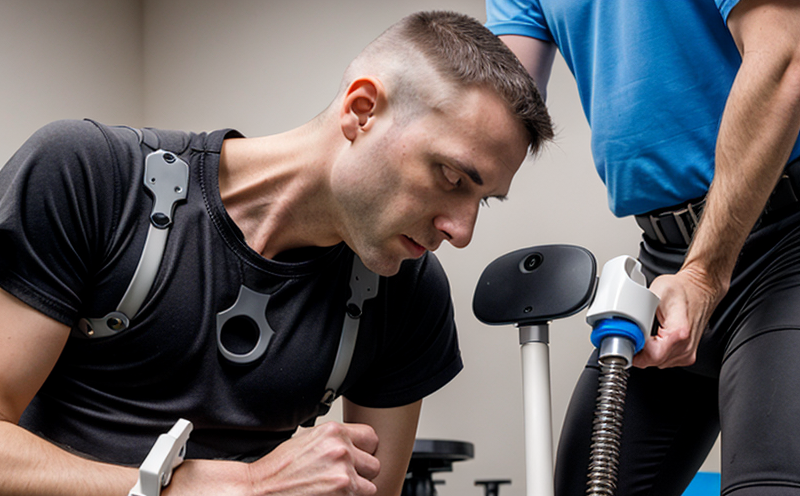ASTM F138 Stainless Steel Mechanical Testing for Implants
The ASTM F138 standard specifies the mechanical testing procedures for stainless steel used in the fabrication of medical implants, particularly those made from types 304L and 316L. This test is critical for ensuring the reliability and safety of orthopedic and prosthetic devices that are implanted into patients.
Stainless steel's resistance to corrosion and wear makes it a preferred material in implant manufacturing. However, its mechanical properties must be rigorously tested to ensure they meet the stringent requirements set by international standards such as ASTM F138. This testing ensures that implants can withstand the stresses of daily activity without failure.
The mechanical tests outlined in ASTM F138 include tensile strength, yield strength, and elongation measurements. These parameters provide critical insights into how an implant will perform under various loads and stress conditions. Tensile strength measures the maximum force a material can withstand before breaking, while yield strength indicates the threshold at which permanent deformation occurs. Elongation assesses how much a material can stretch before it breaks.
Proper specimen preparation is essential for accurate testing results. Specimens are typically prepared by sawing or grinding from the raw stainless steel bars used in implant fabrication. The specimens must be carefully machined to ensure they meet the specified dimensions and tolerances as defined in ASTM F138. This meticulous attention to detail ensures that the test results accurately reflect the mechanical properties of the actual implants.
The testing process itself is conducted using specialized testing machines capable of applying controlled loads on the specimens. The machine records the force applied and the corresponding displacement, providing a detailed load-displacement curve for analysis. This data helps determine the tensile strength, yield strength, and elongation values that are critical to evaluating an implant's performance.
Compliance with ASTM F138 is mandatory for manufacturers aiming to ensure their products meet quality standards set by regulatory bodies such as the U.S. Food and Drug Administration (FDA) and European Union Medical Device Directive (MDR). Non-compliance can result in product recalls, legal action, and reputational damage.
By adhering to ASTM F138, manufacturers demonstrate their commitment to quality and patient safety. This testing process ensures that implants are not only durable but also safe for long-term use within the human body. The results of these tests provide critical data that can influence design modifications and material selection in future product iterations.
For medical device companies, ASTM F138 testing is a necessary step in their quality assurance processes. It ensures that every batch of stainless steel used in implant manufacturing meets the required mechanical properties. This level of rigor helps manufacturers maintain compliance with regulatory requirements and build trust with healthcare providers and patients.
Benefits
The ASTM F138 testing process offers numerous benefits to medical device manufacturers, including enhanced product quality and patient safety. By ensuring that every batch of stainless steel meets the required mechanical properties, this testing process helps eliminate defective materials from reaching production lines.
- Increased Product Reliability: Ensuring that each implant is made from high-quality material enhances its performance under real-world conditions, reducing the risk of failure and complications for patients.
- Regulatory Compliance: Meeting ASTM F138 standards helps manufacturers comply with international regulations, ensuring their products are safe for use in various countries.
- Patient Safety: By adhering to strict testing protocols, medical device companies can provide safer implants that reduce the risk of adverse events such as infections or mechanical failures.
- Improved Reputation: Demonstrating a commitment to quality and safety through rigorous testing enhances a company's reputation in the medical community and among patients.
In addition to these benefits, ASTM F138 testing also aids in continuous improvement of product designs. By analyzing test results, manufacturers can identify areas for enhancement and implement changes that further improve implant performance and durability.
Environmental and Sustainability Contributions
- Eco-friendly Materials: Stainless steel is a recyclable material that contributes positively to environmental sustainability. By ensuring the highest quality of this material through ASTM F138 testing, medical device manufacturers promote sustainable practices.
- Reduced Waste: Proper specimen preparation and testing processes minimize waste by ensuring only high-quality materials are used in production.
- Energy Efficiency: The mechanical testing process uses controlled loads, optimizing energy usage without compromising accuracy.
The ASTM F138 standard promotes the use of sustainable practices throughout the medical device manufacturing process. By adhering to these standards, manufacturers contribute to a more environmentally friendly and efficient industry.
Competitive Advantage and Market Impact
Adhering to ASTM F138 testing protocols provides medical device manufacturers with several competitive advantages in the market. Firstly, it enhances product quality and safety, which are critical factors for healthcare providers and patients alike. This commitment to quality can lead to increased trust and loyalty among customers.
Secondly, compliance with international standards such as ASTM F138 helps manufacturers navigate regulatory requirements more effectively. This reduces the risk of recalls and legal issues, ensuring smoother operations and higher profitability.
In addition, demonstrating a strong commitment to quality through rigorous testing can set medical device companies apart from competitors. It signals to potential customers that they are dealing with a company that prioritizes patient safety and product performance. This competitive edge can translate into increased market share and customer satisfaction.
The impact of ASTM F138 compliance extends beyond individual manufacturers. By promoting high-quality standards across the industry, it contributes to overall improvements in medical device safety and effectiveness. This collective effort enhances public trust in medical technology, driving further innovation and development within the sector.





